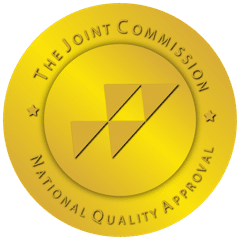Intensive Outpatient Programs (IOPs) have emerged as a vital component of addiction treatment, offering individuals a flexible and effective pathway to recovery. Designed to provide intensive therapeutic support while allowing participants to maintain their daily responsibilities, IOPs offer a comprehensive approach to addiction treatment that addresses the physical, emotional, and psychological aspects of addiction.
In this article, we’ll delve into the structure and components of IOPs, explore the benefits they offer individuals seeking addiction treatment, and provide strategies for success and maintaining sobriety while participating in an IOP. Lift Off Recovery specializes in providing personalized and comprehensive IOPs in Huntington Beach, California, supporting individuals on their journey to recovery with compassion and expertise.
Intensive Outpatient Program Services
Understanding the Structure and Components of Intensive Outpatient Programs (IOPs)
Intensive Outpatient Programs (IOPs) are structured treatment programs that provide intensive therapeutic support for individuals struggling with substance abuse and addiction. Unlike residential treatment programs, which require participants to reside at a treatment facility full-time, IOPs offer a more flexible approach that allows individuals to attend treatment sessions while continuing to live at home and maintain their daily responsibilities, such as work, school, and family commitments.
The structure of an IOP typically involves a combination of individual therapy, group therapy, educational sessions, and support groups, all of which are designed to address the physical, emotional, and psychological aspects of addiction. Participants in an IOP attend regularly scheduled sessions, typically several times per week, where they engage in therapeutic activities aimed at promoting recovery and preventing relapse.
Exploring the Benefits of IOPs for Individuals Seeking Addiction Treatment
IOPs offer a range of benefits for individuals seeking addiction treatment, making them a popular choice for many people struggling with substance abuse. One of the primary benefits of IOPs is their flexibility, which allows participants to attend treatment sessions while still maintaining their daily responsibilities. This flexibility makes IOPs accessible to individuals who may not be able to commit to a residential treatment program due to work, school, or family obligations.
Additionally, IOPs provide intensive therapeutic support, offering participants a structured environment where they can receive individualized care and support from trained professionals. This level of support is essential for individuals navigating the challenges of addiction recovery, providing them with the tools and resources they need to achieve and maintain sobriety.
Another key benefit of IOPs is their focus on relapse prevention and long-term recovery. Through a combination of individual therapy, group therapy, and educational sessions, participants learn valuable coping skills and strategies for managing cravings, triggers, and other challenges associated with addiction. This comprehensive approach to treatment equips individuals with the skills and confidence they need to maintain sobriety and thrive in their recovery journey.
Developing a Personalized Treatment Plan Within an IOP Framework
One of the strengths of IOPs is their ability to tailor treatment plans to meet the unique needs and preferences of each individual participant. Upon entering an IOP, individuals undergo a comprehensive assessment to determine their specific needs, goals, and challenges related to addiction. Based on this assessment, a personalized treatment plan is developed that outlines the individual’s goals for treatment and identifies the specific interventions and therapies that will be used to achieve those goals.
Personalized treatment plans within an IOP framework may include a combination of individual therapy, group therapy, family therapy, medication-assisted treatment (MAT), and other evidence-based interventions. Additionally, participants may have access to ancillary services such as psychiatric care, medical monitoring, and holistic therapies like yoga, meditation, and acupuncture, all of which are designed to support the individual’s overall well-being and recovery.

Navigating the Therapy Modalities and Techniques Commonly Used in IOPs
IOPs utilize a variety of therapy modalities and techniques to address the complex needs of individuals struggling with addiction. These may include:
- Cognitive-behavioral therapy (CBT): CBT is a type of therapy that focuses on identifying and changing negative thought patterns and behaviors that contribute to addiction. In an IOP setting, CBT may be used to help individuals develop coping skills, manage cravings, and prevent relapse.
- Dialectical behavior therapy (DBT): DBT is a type of therapy that focuses on teaching individuals mindfulness, emotion regulation, interpersonal effectiveness, and distress tolerance skills. In an IOP setting, DBT may be used to help individuals develop healthier coping mechanisms and improve their ability to manage stress and difficult emotions.
- Motivational interviewing (MI): MI is a type of therapy that focuses on exploring and resolving ambivalence about change. In an IOP setting, MI may be used to help individuals identify their motivations for recovery, set achievable goals, and overcome barriers to change.
- Group therapy: Group therapy allows participants to connect with others who are struggling with similar issues, providing a supportive and non-judgmental environment where they can share experiences, learn from one another, and develop social support networks.
Strategies for Success and Maintaining Sobriety While Participating in an IOP
Participating in an IOP requires commitment, dedication, and a willingness to actively engage in the recovery process. Here are some strategies for success and maintaining sobriety while participating in an IOP:
- Attend all scheduled sessions: Consistency is key to success in an IOP. Attend all scheduled therapy sessions, support groups, and educational sessions to maximize the benefits of treatment and stay on track with your recovery goals.
- Be open and honest: Honesty is essential in addiction recovery. Be open and honest with your treatment team about your thoughts, feelings, and experiences, even when it’s difficult or uncomfortable.
- Practice self-care: Take care of yourself physically, emotionally, and spiritually during your time in an IOP. Engage in activities that promote relaxation, stress reduction, and overall well-being, such as exercise, meditation, and spending time with loved ones.
- Build a support network: Surround yourself with supportive friends, family members, and peers who understand and respect your journey to recovery. Lean on your support network for encouragement, guidance, and accountability.
- Utilize coping skills: Develop and practice healthy coping skills for managing cravings, triggers, and other challenges associated with addiction. These may include deep breathing exercises, mindfulness techniques, and distraction strategies.
IOP Your Blueprint for Success
Intensive Outpatient Programs (IOPs) offer a flexible and effective pathway to addiction treatment, providing individuals with the support, resources, and tools they need to achieve and maintain sobriety. By understanding the structure and components of IOPs, exploring their benefits, developing a personalized treatment plan, navigating therapy modalities, and implementing strategies for success, individuals can embark on a journey of recovery that leads to lasting positive change.
If you or someone you know is struggling with addiction, consider exploring the options available through an IOP like Lift Off Recovery. Your path to recovery starts here. Contact us today to learn more about our intensive outpatient program and take the first step towards a brighter future.

- What is the history of Intensive Outpatient Programs (IOPs) for addiction treatment?IOPs have a rich history dating back to the mid-20th century when they emerged as a flexible alternative to traditional residential treatment. Initially, they were designed to provide intensive therapy while allowing individuals to maintain their daily responsibilities.
- How do IOPs compare to residential treatment programs?Unlike residential programs where participants stay at a facility full-time, IOPs offer more flexibility, allowing individuals to attend therapy sessions while continuing to live at home and fulfill their daily obligations.
- What are the components of an Intensive Outpatient Program?IOPs typically include a combination of individual therapy, group therapy, educational sessions, and support groups. These components address the physical, emotional, and psychological aspects of addiction.
- How do IOPs benefit individuals seeking addiction treatment?IOPs offer flexibility, intensive therapeutic support, and focus on relapse prevention. Participants can attend sessions while maintaining their daily responsibilities, receive personalized care, and learn valuable coping skills to support long-term recovery.
- What role does Lift Off Recovery play in the addiction treatment landscape of San Diego?Lift Off Recovery is a leading provider of Intensive Outpatient Programs in San Diego, offering a comprehensive approach to addiction treatment that addresses the unique needs of each individual. Our program focuses on empowering clients to achieve lasting sobriety and improve their overall well-being.
- How does Lift Off Recovery incorporate evidence-based practices into its IOP?Lift Off Recovery utilizes evidence-based therapies such as cognitive-behavioral therapy (CBT), dialectical behavior therapy (DBT), and motivational interviewing (MI) to address addiction and related issues. These therapies have been proven effective in promoting recovery and preventing relapse.
- What sets Lift Off Recovery apart from other IOPs in San Diego?Lift Off Recovery stands out for its personalized approach to treatment, experienced staff, and commitment to client success. Our program offers a supportive and nurturing environment where clients can thrive on their journey to recovery.
- How can individuals succeed in an IOP like Lift Off Recovery?Success in an IOP requires commitment, honesty, and active participation in therapy sessions and activities. By attending all scheduled sessions, practicing self-care, building a support network, and utilizing coping skills, individuals can maximize their chances of success.
- What resources does Lift Off Recovery offer to support clients in their recovery journey?Lift Off Recovery provides a range of resources, including therapy sessions, support groups, educational workshops, and referrals to community resources. Our goal is to empower clients with the tools and support they need to achieve lasting sobriety.
- How can individuals get started with Lift Off Recovery’s IOP?Getting started with Lift Off Recovery is easy. Simply contact our admissions team to schedule an assessment and learn more about our program. We’re here to support you every step of the way on your journey to recovery.










